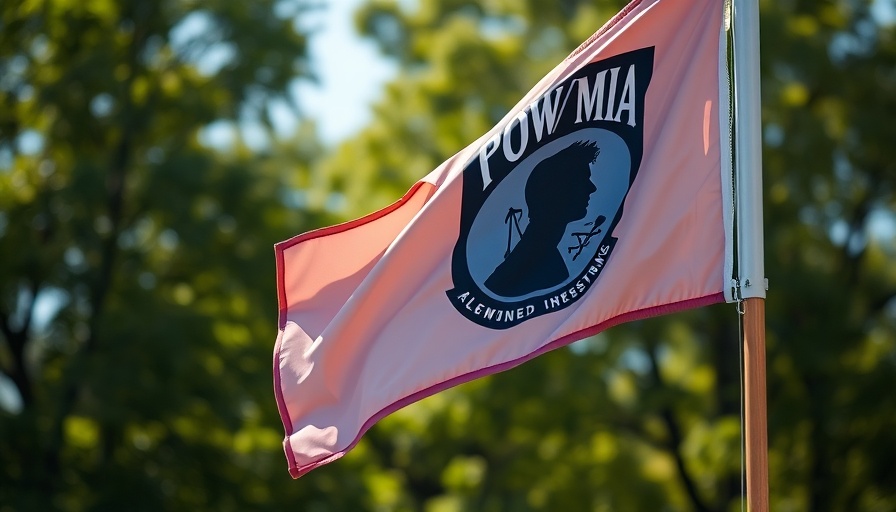
Confrontation Sparks Controversy in Washington State
A recent public display in a Washington state town has sparked a fierce debate, igniting tensions between local government officials and activists. The mayor's impassioned response to an LGBTQ activist who accused him of using the flying of the POW/MIA flag as a political stunt has raised questions about the intersection of civic duty and political symbolism.
The POW/MIA Flag: A Symbol of Sacrifice
The POW/MIA flag represents the enduring commitment to honor those military personnel who remain missing in action and those who were prisoners of war. This emblem holds deep significance for many Americans but is increasingly politicized. The mayor argued that flying this flag is a non-partisan gesture of respect for sacrifice and service, which he felt was misconstrued by critics who saw ulterior motives behind its display.
Understanding the Critics' Perspective
Advocates for the LGBTQ community emphasize that certain actions by public figures can be interpreted as insincere, particularly in a climate charged with political tensions. Some activists view the mayor's actions as an attempt to distract from pressing LGBTQ issues, suggesting that the flag's display is a veiled maneuver designed to sway public opinion or divert attention from current socio-political challenges. The mayor’s vehement defense highlighted the complexities of navigating identity politics amid rising polarization in America.
Empathy and Understanding: The Social Connection
This controversy sheds light on a larger societal issue: the importance of inclusive dialogue in addressing divergent viewpoints. Tensions often arise when we mistakenly conflate gestures of remembrance and respect with political allegiance. Understanding and addressing the sensitivities of different communities can pave the way for meaningful conversations that foster empathy instead of division.
The National Landscape: Reflections on Civic Engagement
This incident resonates beyond local boundaries as it aligns with broader national narratives. In recent years, civic engagement has become increasingly polarized, with communities divided over their perceptions of political symbols. The question remains: how can public leaders balance respect and representation in a time when every action is scrutinized as a potential political statement? The mayor’s passionate outburst serves as a reminder of the frustrations that arise when public service is viewed through a partisan lens.
Looking Ahead: What Comes Next?
As the discourse surrounding the LGBTQ community and veterans continues, vigilant attention to these discussions is necessary. Future engagements between activists and public officials must prioritize understanding over confrontation. By developing frameworks for open dialogue and collaboration, stakeholders can work towards shared goals that honor both the rights of marginalized communities and the sacrifices of veterans.
Navigating the Challenges: What Can You Do?
Individuals who wish to contribute positively to these conversations can take several actions. Advocating for platforms that encourage mutual respect, attending town hall meetings, or simply fostering conversations with friends and family can help bridge gaps. Engaging putatively divergent communities in constructive dialogues about representations can foster trust and understanding.
In conclusion, as we navigate these complex cultural waters, the emphasis should be placed on finding common ground, validating experiences, and fostering a climate of inclusion. Moving beyond the theatrics of partisanship, we must prioritize human connection in our civic dealings.
 Add Element
Add Element  Add Row
Add Row 



 Add Row
Add Row  Add
Add 


Write A Comment